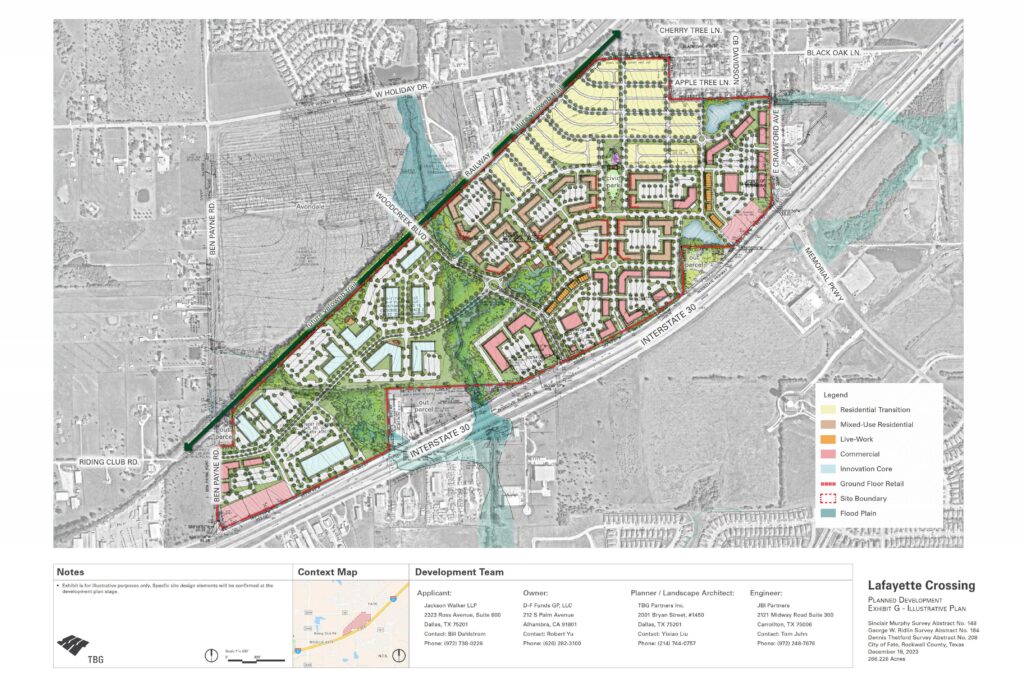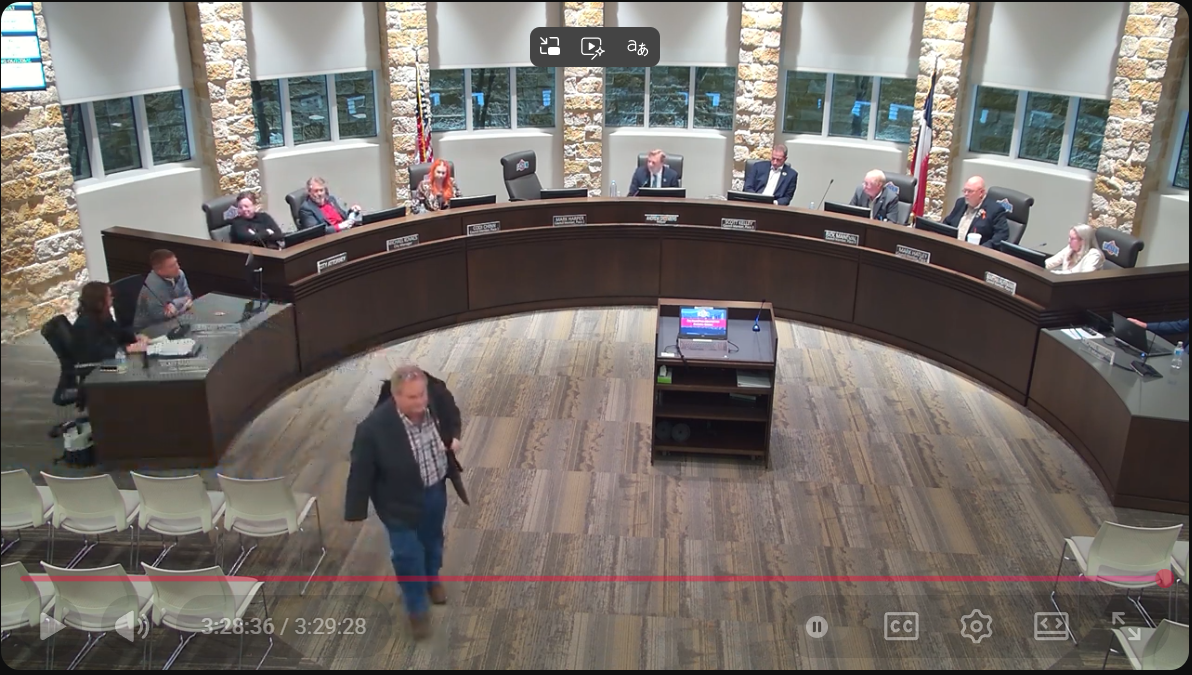Leftist Professors May Leave Texas. #Winning!
In a surprising turn of events, leftist-leaning professors in the Lone Star State are contemplating leaving Texas following the passage of Senate Bill 17, survey finds.
Senate Bill 17 Spurs Exodus of Professors Unhappy with Texas’ New Policies
In a surprising turn of events, leftist-leaning professors in the Lone Star State are contemplating leaving Texas following the passage of Senate Bill 17. This groundbreaking revelation comes from a recent survey conducted by the American Association of University Professors (AAUP) and the Texas Faculty Association (TFA), which shed light on the discontent among the academic community. The bill, signed into law by Governor Greg Abbott on June 17, 2023, has sparked concerns over academic freedom, diversity, equity, and inclusion on college campuses.
“These findings serve as a wake-up call for policymakers, administrators, employers, and other concerned citizens, emphasizing the urgent need to address the concerns raised by faculty members. Failure to do so may result in a significant exodus of faculty, challenges attracting academic talent, and an overall decline in the quality of higher education,”
Statement from the groups published with the survey’s findings.
Senate Bill 17, which has ignited this wave of discontent, addresses diversity, equity, and inclusion initiatives at public institutions of higher education. One of its key provisions restricts the establishment and operation of diversity, equity, and inclusion offices within these institutions. It also forbids preferential treatment based on factors like race, sex, or ethnicity in hiring or admissions processes. Furthermore, it curtails the enforcement of diversity, equity, and inclusion training that is not explicitly tied to federal law or court orders.
The survey conducted by AAUP and TFA showed that approximately two-thirds (63.3%) of respondents would not recommend Texas as a destination for their colleagues from other states seeking faculty positions. Furthermore, over a quarter (28.7%) are planning to interview for positions outside Texas in the coming year, while nearly one in six (19.1%) have already interviewed elsewhere since 2021. The preferred destinations for these professors considering leaving the state are California, New York, and Colorado, in that order.
What has prompted this potential exodus among Texas professors? The survey revealed a complex array of concerns, with the state’s political climate taking the lead at 56.8%. The respondents also expressed anxiety about salary disparities (52.9%), threats to academic freedom (48.1%), diversity, equity, and inclusion (DEI) issues (46.7%), reproductive rights and abortion access (40.1%), tenure-related issues (39.4%), LGBTQ+ rights (33.7%), shared governance (27.0%), the cost of living (17.1%), and contractual matters (10.1%).
The concerns expressed by professors, particularly the impact on academic freedom and diversity, equity, and inclusion efforts, have stirred significant debate across the state. As the academic community grapples with the potential consequences of this bill, it is important to understand the reasons behind their discontent and consider the implications of losing valuable educators.
The Impact on Academic Freedom
One of the central issues raised by leftist-leaning professors in Texas is the threat to academic freedom posed by Senate Bill 17. Critics argue that the bill’s provisions, particularly those limiting diversity, equity, and inclusion initiatives, could hinder open discourse and diversity of thought on campuses. They fear that restrictions on these programs might stifle important discussions and limit the exposure of students to a wide range of perspectives.
Proponents of the bill contend that it protects free speech by preventing the enforcement of ideological training that may be perceived as biased. They argue that universities should maintain a neutral stance on political and social issues to ensure that all viewpoints are welcome. However, many academics argue that such policies are an overreach that may ultimately undermine the educational mission of institutions of higher learning.
Diversity, Equity, and Inclusion Under Scrutiny
Senate Bill 17’s restrictions on diversity, equity, and inclusion offices have drawn significant attention and criticism. These offices are often seen as crucial in promoting diversity on campus, fostering an inclusive environment, and addressing systemic inequalities. Critics of the bill argue that these restrictions could hinder efforts to create a more inclusive academic community and address issues of discrimination.
Conversely, supporters argue that the bill seeks to prevent potential discrimination in hiring and admissions based on factors such as race or gender. They believe that eliminating preferential treatment in these areas will lead to a fairer and more merit-based system.
The Political Climate and Its Impact
Perhaps one of the most significant factors driving professors to consider leaving Texas is the state’s political climate. The survey revealed that a majority of respondents (56.8%) cited this as their primary reason for wanting to depart. It is no secret that Texas has been at the center of political battles in recent years, with many contentious issues dominating the public discourse.
For professors with left-leaning perspectives, the perceived hostility toward their views in the state’s political landscape has created a sense of unease. Some worry that their academic freedom may be curtailed or that they may face backlash for their political beliefs. As a result, they are exploring opportunities in states where their views may be more aligned with the prevailing political climate.
The potential departure of leftist-leaning professors from Texas in the wake of Senate Bill 17 raises important questions about academic freedom, diversity, equity, and inclusion in higher education. While the bill’s supporters argue that it safeguards free speech and levels the playing field, critics contend that it poses a threat to these values.
As the state grapples with the consequences of this legislation, it is essential for policymakers, university administrators, and the public to engage in constructive dialogue and seek solutions that balance the interests of all stakeholders. The quality of higher education in Texas and the reputation of its universities hang in the balance, making it crucial to address these concerns and maintain the state’s appeal as a destination for top academic talent.

Fate, TX
CyberSquatting City Hall: How City Claimed a Developer’s Domain

How Fate registered a developer’s project domain after seeing it in official plans, then fought to keep that fact hidden
FATE, TX – Cities are expected to regulate development, not steal its name.
Records obtained by Pipkins Reports show the City of Fate registered the domain name of a private development, lafayettecrossing.com, while actively working with the developer who had already claimed that name in official plans. The move, made quietly during a heated approval process, raises serious questions about whether Fate’s city government crossed from partner to predator, taking digital ownership of a project it was supposed to oversee with neutrality and good faith… and depriving the developer of their rights to domain ownership.
What followed, attempts to conceal the purchase, shifting explanations from city officials, and a documented pattern of advocacy on behalf of the developer, suggests the domain registration was not an accident, but part of a broader effort to control the narrative around one of the most divisive projects in the city’s history.
A site plan submitted by the developer, D-F Funds GP, LLC, led by Robert Yu, shows the project title “Lafayette Crossing” clearly identified in the title block on December 20, 2023. The document was part of the city’s official development review for the controversial project at the corner of I-30 and Highway 551.

Less than two months later, on February 7, 2024, the City of Fate registered the domain lafayettecrossing.com, Invoice #116953461, for $12.
Domain records confirm the registration date, with the domain set to expire on February 7, 2027. By that point, Lafayette Crossing was already the established name of the project, used by the developer and embedded in official plans circulating within City Hall.
This was not a coincidence. The city had the plans from the developer. Their were extensive talks regarding the project. Then the city registered the domain without the knowledge of the developer. This is known in the industry as, “Cybersquatting.”
The development, originally referred to as the “Yu Tract,” became known as Lafayette Crossing as it moved through the approval process. The project ignited intense public opposition over density, traffic congestion, infrastructure strain, and the long-term direction of Fate’s growth. Despite sustained resistance and packed council chambers, the city council approved the project.
The political fallout was severe. In the elections that followed, four council members and the mayor were replaced, an extraordinary level of turnover that reflected deep voter dissatisfaction. Two members from that Council, Councilman Mark Harper and Councilman Scott Kelley, remain, but are up for reelection this May.
That context matters, because the domain registration did not occur in isolation. It occurred amid a broader, documented pattern of city officials actively working to shape public perception in favor of the developer.
In February 2024, Pipkins Reports, then operating as the Fate Tribune, published an exposé based on internal city emails showing City Manager Michael Kovacs discussing strategies to “educate” the public about Lafayette Crossing. In those emails, Kovacs suggested deploying what he referred to as “Fire Support,” a term used to describe both paid and unpaid advocates brought forward to counter citizen opposition and astroturf public support for the project.
That reporting revealed a city government not merely responding to public concerns, but actively attempting to manage and counter them.
In a later publication, Pipkins Reports (Fate Tribune) documented the City of Fate’s hiring of Ryan Breckenridge of BRK Partners, engaging in what records showed to be a coordinated public relations effort aimed at improving the project’s image and swaying public sentiment. The campaign was presented as informational, but residents viewed it as advocacy on behalf of the developer, funded with public resources.
It was within this environment, where city staff had already aligned themselves publicly and privately with the developer’s interests, that the city registered the lafayettecrossing.com domain. Yet that fact remained hidden until PipkinsReports.com submitted an Open Records Request on September 30, 2025, seeking a list of all domains owned by the city.
Rather than comply, the City of Fate objected. On October 14, 2025, officials asked the Texas Attorney General’s Office for permission to withhold the records, citing “cybersecurity” concerns.
On January 6, 2026, the Attorney General rejected that claim and ordered the information released. The city complied on January 20, 2026.
In addition to the lafayettecrossing.com domain, the records revealed the city owns numerous domains tied to redevelopment and branding initiatives, including:
- FateTX.gov
- DowntownFate.com
- FateFoodHaul.com
- FateMainStreet.com
- FateStationHub.com
- FateStationMarket.com
- FateStationPark.com
- FateStationSpur.com
- OldTownFate.com
- TheHubAtFateStation.com
- TheSpurAtFateStation.com
- ForwardFate.com
Most clearly relate to city-led initiatives. LafayetteCrossing.com stands apart because it mirrors the established name of a private development already proposed, named, and publicly debated.
When questioned via email, Assistant City Manager Steven Downs initially suggested the domain purchase occurred long before his involvement and downplayed any potential issues. When we revealed documents to show Downs was actively engaged with the project at the same time the Lafayette Crossing name entered the city’s official workflow, his story changed.
In follow-up correspondence, Downs acknowledged he was aware of the project name, while placing responsibility for the domain purchase on former Assistant City Manager Justin Weiss. Downs stated he did not know whether the developer was aware of the purchase and said he was not concerned about potential liability.
What remains unexplained is why the city registered the domain at all, knowing it belonged to a private project, and why it attempted to keep that information from the public.
Opinion
Viewed in isolation, a $12 domain purchase might seem trivial. Viewed in context, it is not.
When a city that has already worked to astroturf support, hire public relations firms, and counter citizen opposition also quietly registers a developer’s project domain, then attempts to conceal that information from the public, the line between regulator and advocate disappears.
The question is no longer whether the city knew the name. The record shows it did.
The question is why a city government so deeply invested in selling a controversial project to its residents felt the need to take ownership of the project’s digital identity as well.
Control of messaging, control of perception, and control of narrative are powerful tools. Sometimes it is equally as important to control what is not said.
Election
New Poll Shows Crockett, Paxton Leading Texas Senate Primary Contests

Texas Senate Primaries Show Early Leads for Crockett and Paxton
AUSTIN, Texas – A new poll released by The Texas Tribune indicates that Jasmine Crockett and Ken Paxton are leading their respective primary races for the U.S. Senate seat in Texas. The survey, published on February 9, 2026, highlights the early momentum for both candidates as they vie for their party nominations in a closely watched election cycle. The results point to strong voter recognition and support for Crockett in the Democratic primary and Paxton in the Republican primary.
The poll, conducted among likely primary voters across the state, shows Crockett holding a significant lead over her Democratic challenger James Talarico, while Paxton maintains a commanding position among Republican contenders John Cornyn & Wesley Hunt.
According to the poll, Ken Paxton leads with 38 percent of likely GOP primary voters, pulling ahead of incumbent John Cornyn, who trails at 31 percent, while Wesley Hunt remains a distant third at 17 percent. The survey indicates Paxton would hold a commanding advantage in a runoff scenario and currently outperforms Cornyn across nearly every key Republican demographic group, with Latino voters the lone exception, where Cornyn maintains a seven-point edge.
Among Democrats, the poll shows Jasmine Crockett opening a notable lead, capturing 47 percent of likely primary voters compared to 39 percent for James Talarico—a meaningful shift from earlier polling that had Talarico in the lead. While still early, the numbers suggest momentum is consolidating ahead of primaries that will determine the general election matchups.
Jasmine Crockett, a sitting U.S. Representative whose district lines were redrawn out from under her, has responded to political extinction with a desperate lurch toward the U.S. Senate. Her campaign, widely criticized as race-baiting and grievance-driven, has leaned heavily on inflaming urban Democratic turnout while cloaking thin policy substance in fashionable slogans about healthcare and “equity.”
By contrast, Ken Paxton enters the race with a long, battle-tested record as Texas Attorney General, earning fierce loyalty from conservatives for his aggressive defense of state sovereignty, constitutional limits, and successful legal challenges to federal overreach. Though relentlessly targeted by opponents, Paxton’s tenure reflects durability, clarity of purpose, and an unapologetic alignment with the voters he represents—qualities that define his standing in the contest.
The Texas U.S. Senate race draws national attention, as the state remains a critical battleground in determining the balance of power in Congress. With incumbent dynamics and shifting voter demographics at play, the primary outcomes will set the stage for a potentially contentious general election. The Texas Tribune poll serves as an initial benchmark, though voter sentiment could evolve as campaigns intensify and debates unfold in the coming weeks.
Council
Fate City Council Votes to Release Secret Recordings

Councilman Mark Harper walks out of meeting before adjournment.
FATE, TX – The Fate City Council voted late Monday night to waive deliberative privilege, opening the door to the public release of secret audio recordings that may have driven a recall election against Councilwoman Codi Chinn. The decision came after hours of public criticism, procedural friction, and a lengthy executive session with legal counsel.
The meeting, held Monday, February 2, was streamed live by the city and is available on YouTube at: https://www.youtube.com/live/zQVN0i-d8C0 (Embedded Below)
(Source: City of Fate, official meeting broadcast)
Timeline for Readers
- 00:33:52 – Public comments begin, largely focused on the recall election of Councilwoman Codi Chinn.
- 00:56:10 – Councilman Harper interrupts public Comment.
- 00:57:00 – Councilman Harper interrupts public Comment.
- 00:58:00 – Councilman Harper interrupts public Comment.
- 02:21:00 – Executive Session – Council enters closed session to consult with legal counsel.
- 03:22:52 – Council reconvenes in open session.
- Primary motion – Council votes to “waive deliberative privilege”, allowing release of disputed audio recordings.
Public Comment and Visible Strain
Public comments began just after the 33 minute mark and quickly centered on the recall election. Speaker after speaker questioned the conduct of city officials and demanded transparency regarding audio recordings that have circulated privately but remained unavailable to the public.
During one speaker’s remarks, critical of Councilwoman Chinn, procedural tension became visible. Three separate times, Councilman Mark Harper interrupted to remind Mayor Andrew Greenberg that the speaker had exceeded the three-minute time limit. Each time, Mayor Greenberg thanked Harper for the reminder, then directed the speaker to continue.
The exchange stood out. While council rules clearly limit speakers to three minutes, the mayor’s repeated decision to allow the speaker to proceed suggested an effort to avoid the appearance of silencing criticism during a highly charged meeting.
Clarifying the Recordings
Contrary to some early assumptions, the audio recordings at issue were not recordings of executive sessions. Instead, they are one-party consent recordings, the existence of which has been previously reported and alluded to on Pipkins Reports. Their precise origin has not been publicly detailed, but their contents have been referenced repeatedly by both supporters and critics of the recall effort.
Behind Closed Doors
Following the public meeting, the council entered executive session to consult with legal counsel. After about an hour, members returned to open session at approximately 3:22:52 .
The primary motion coming out of that session was to “waive deliberative privilege“. The effect of the vote was to remove a legal obstacle to releasing the secret audio recordings that have been at the center of the controversy.
No excerpts were played, and no conclusions were announced. The council did not rule on the legality of the recordings, nor did it weigh in on the merits of the recall election itself.
Why the Vote Matters
The decision does not resolve the recall of Councilwoman Chinn. It does not validate or refute claims made by either side. What it does is shift the debate away from rumor and secondhand accounts.
According to guidance from the Texas Municipal League, governing bodies may waive certain privileges when transparency is deemed to serve the public interest, particularly when litigation risk is balanced against public trust (Texas Municipal League, Open Meetings Act resources).
Opinion and Perspective
The council’s action was a necessary step. Secret recordings, selectively referenced and strategically leaked, undermine confidence in local government. So does a refusal to confront them directly.
Transparency is not about protecting officials from embarrassment. It is NOT the job of the council to assist the city in concealing information that may be used against it in legal proceedings when the City Manager, or Councilmen, may have done bad things. It is about protecting citizens from manipulation. If the recordings exonerate those involved, their release will restore credibility. If they raise concerns, voters deserve to hear them unfiltered before making decisions in a recall election.
Monday night in Fate did not end the controversy. It ended the excuse for keeping the public in the dark.

You must be logged in to post a comment Login